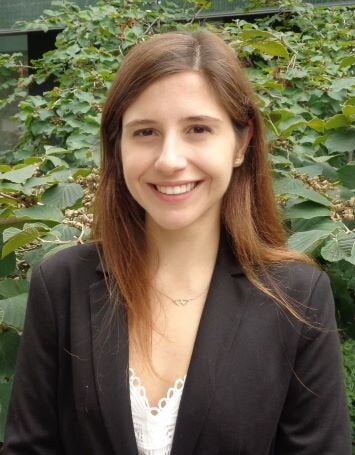
Despite the unprecedented hardships that accompanied the COVID-19 pandemic, it served as a moment of learning for many scientists and researchers across the globe. In a time of so much uncertainty, these professionals stepped up to the plate to find a solution.
For one such researcher at the University of Illinois Urbana-Champaign, challenges created by the pandemic served as inspiration for the work she is pursuing today.
“I saw how people’s decisions were resulting with bad [health] results or good results,” Dr. Gökçe Dayanıklı, an assistant professor, said. “There were mask mandates, but some people weren't wearing masks, and they were getting sick. Sadly, some of them were dying. Others were being very responsible, and they were wearing their masks, so their results were better in terms of health status.”
Dayanıklı studies respiratory illness outbreaks and the ways that negative health impacts can be mitigated by public policy.
In addition to COVID-19, common respiratory illnesses include the flu and RSV.
Her work involves examining human responses to legislation like vaccine mandates and social distancing. Using game theory tools, her team hopes to better understand why some are more effective than others.
Game theory allows researchers to test the outcomes of a scenario based on a set of decisions that can be made. For example: during the COVID-19 pandemic, some states decided to implement mask requirements, while others did not. Those who did saw lower transmission rates compared to those without requirements.
Dayanıklı also said these models can help create more equitable policies. Testing their impacts on different socioeconomic groups can help.
“If you are not in a very strong socioeconomic class, you may not be able to get a break from your work to go and get a vaccination. Or, you may not have a car, and in the U.S. sadly transportation is a bit of an issue,” Dayanıklı said.
“Vaccination areas are generally not at the center of towns, and many people are living in suburbs, so it can create problems.”
Eventually, the team will conduct surveys with real people to get a better feel for what factors impact their likeliness to follow certain policies– such as social distancing or vaccine requirements– outside of modeling technology.
Dayanıklı hopes that her team’s work will allow lawmakers both locally and federally to understand the impacts of their legislation on constituents before making it official.
“Generally, we don't know what type of emergent reaction we are going to get, because we're interacting with, at the country level, millions of people, right? So I think for the policy makers, taking into account the reaction of the people should be a main consideration while they are designing them,” Dayanıklı said.
In collaboration with Dr. Pamela Martinez, Dayanıklı’s research also recently received a $360,000 National Science Foundation award.
The money, which becomes available at the start of the new year, will allow the team to continue outreach and surveying efforts. Some of this outreach involves speaking to K-12 students about the relevance of STEM in their everyday lives.
“Actually showing that you can use these types of [mathematical] tools to decide on some real life problems, I think it can be a good reason for high schoolers to consider STEM education and careers,” Dayanıklı said. “Especially for the cases where students are underrepresented, or your environment and parents don’t relate to this subject, it might be good for those children to see.”
She also emphasized the importance of seeing yourself represented in your field of choice. As a member of a woman-led team, Dayanıklı is proud to set an example for young girls.
“When you see people similar to you, you feel more comfortable and you feel more motivated,” Dayanıklı said. “So I'm really hoping that it will help students, like the girls or the underrepresented minorities, to know that we have a space for them and they should feel welcome.”
While their work is currently based in Champaign-Urbana, the team aspires to eventually join forces with the CDC.
Hannah Lonergan is a staff writer for the Department of Statistics. If you have news to share, please contact the Statistics News Group at stat-marcom@illinois.edu